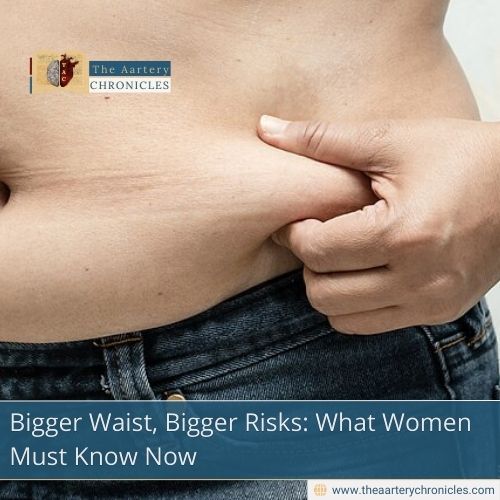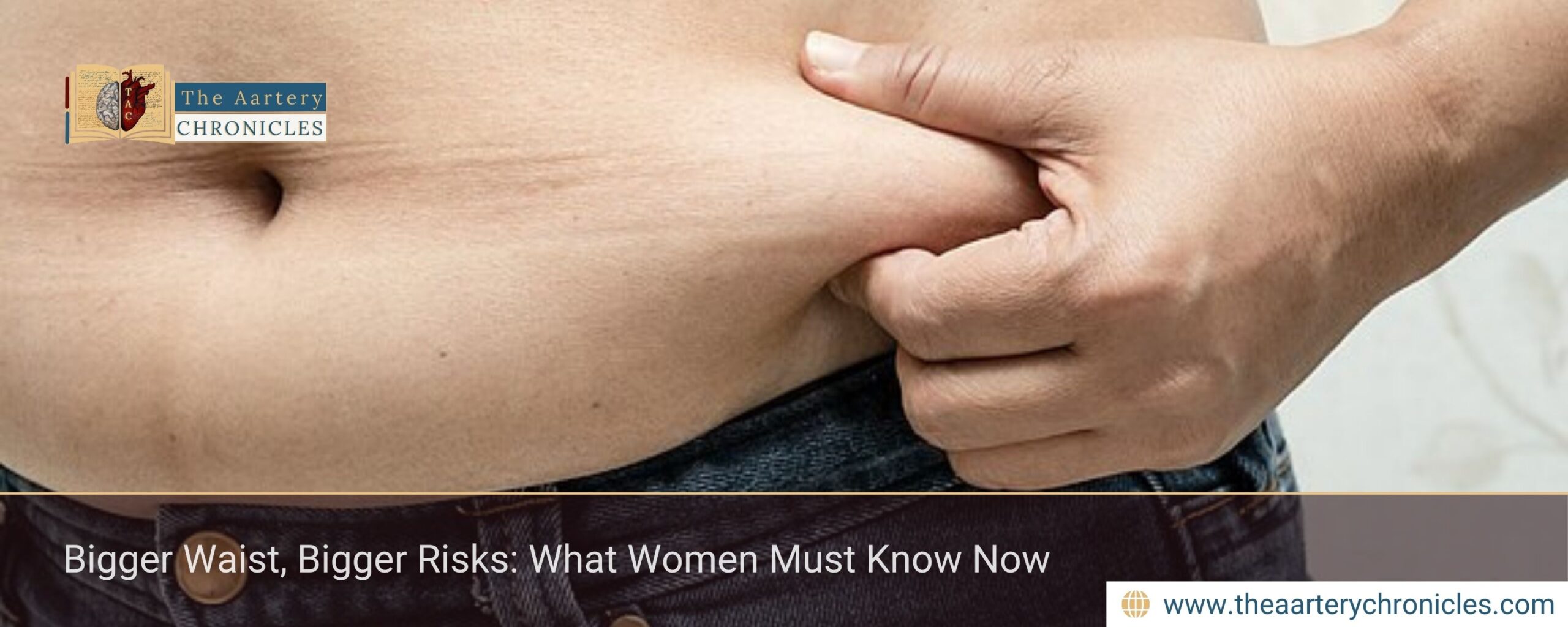

Bigger Waist, Bigger Risks: What Women Must Know Now
Health experts are warning that bigger waist, bigger risks is not a myth but a medical reality. New evidence shows that excess fat around the waistline, often called central obesity, can sharply raise the risk of obesity-related complications, heart disease, and even breast cancer in postmenopausal women.
Unlike general body weight measured through BMI, waist circumference appears to be a stronger predictor of long-term health risks. Belly fat is hormonally active, triggering inflammation, insulin resistance, and elevated estrogen levels, all factors that can accelerate tumour growth and worsen cardiovascular health.
When Obesity and Heart Disease Combine
Obesity alone has long been a concern, but its link with heart disease multiplies the danger. A major study led by Dr. Heinz Freisling from the International Agency for Research on Cancer analysed data from over 168,000 postmenopausal women across Europe and the UK.
Key findings included:
- Women with a BMI above 35 had a 58% higher chance of developing hormone-driven breast cancers.
- Breast cancer mortality was more than double in the most obese group compared to women of a healthy weight.
This shows that obesity combined with cardiovascular disease (CVD) or diabetes creates a “high-risk profile” where both survival and recovery outcomes are poorer.
Why Waist Size Matters More Than BMI
BMI is still widely used, but it does not reflect fat distribution. Waist circumference and waist-to-hip ratio provide clearer insight into central obesity and its dangers.
Dr. Arvind Badiger, Technical Director at BDR Pharmaceuticals, explains that abdominal fat is not just storage; it acts like a hormone factory. It produces extra estrogen, feeds hormone-sensitive tumours, and sparks inflammation that damages DNA repair systems.
Even women with a normal BMI but a larger waistline often show metabolic dysfunction. This underlines why experts insist: bigger waist, bigger risks.
How Medications Influence Risk
Drugs can either increase or reduce breast cancer risk in postmenopausal women:
- Hormone Replacement Therapy (HRT), especially estrogen–progestin types, raises breast cancer risk.
- Statins and Metformin may offer protection by lowering inflammation and slowing abnormal cell growth.
- Corticosteroids can complicate detection by masking tumour markers.
Therefore, a thorough review of medication history is vital in cancer risk assessment.
Healthy Habits Make the Difference
Encouragingly, lifestyle changes can dramatically lower risk. The American Institute for Cancer Research estimates that one-third of breast cancers in the U.S. could be prevented if women maintained a healthy weight, exercised regularly, and limited alcohol intake.
For women with heart disease, the benefits are doubled: improving heart health while reducing cancer triggers such as inflammation and hormonal imbalance.
Screening Beyond Mammograms
While mammograms remain essential, experts recommend a broader approach for women with obesity and heart disease. This should include:
- Checking metabolic markers (insulin resistance, lipid levels, estradiol, C-reactive protein).
- Measuring waist size and waist-to-hip ratio.
- Assessing cardiovascular health and reviewing medications.
Such personalised screening can detect cancer earlier and improve survival outcomes.
Key Health Reminders for Postmenopausal Women
- Track waist circumference as closely as BMI.
- Protect heart health to avoid compounded risks.
- Discuss medication effects with doctors.
- Focus on exercise, a balanced diet, and limiting alcohol.
- Ask for a comprehensive screening, not just mammography.
Conclusion
A bigger waist, bigger risks is a clear health warning, not just a phrase. For postmenopausal women, central obesity combined with heart disease significantly raises the chance of developing breast cancer. By addressing waistline health, making lifestyle changes, and adopting advanced screening, women can take control of their long-term well-being.
Source: Inputs from various media Sources
Conclusion
I’m a pharmacist with a strong background in health sciences. I hold a BSc from Delhi University and a pharmacy degree from PDM University. I write articles and daily health news while interviewing doctors to bring you the latest insights. In my free time, you’ll find me at the gym or lost in a sci-fi novel.
- Priya Bairagi
- Health News and Updates,People Forum
- 15 September 2025
- 20:00








